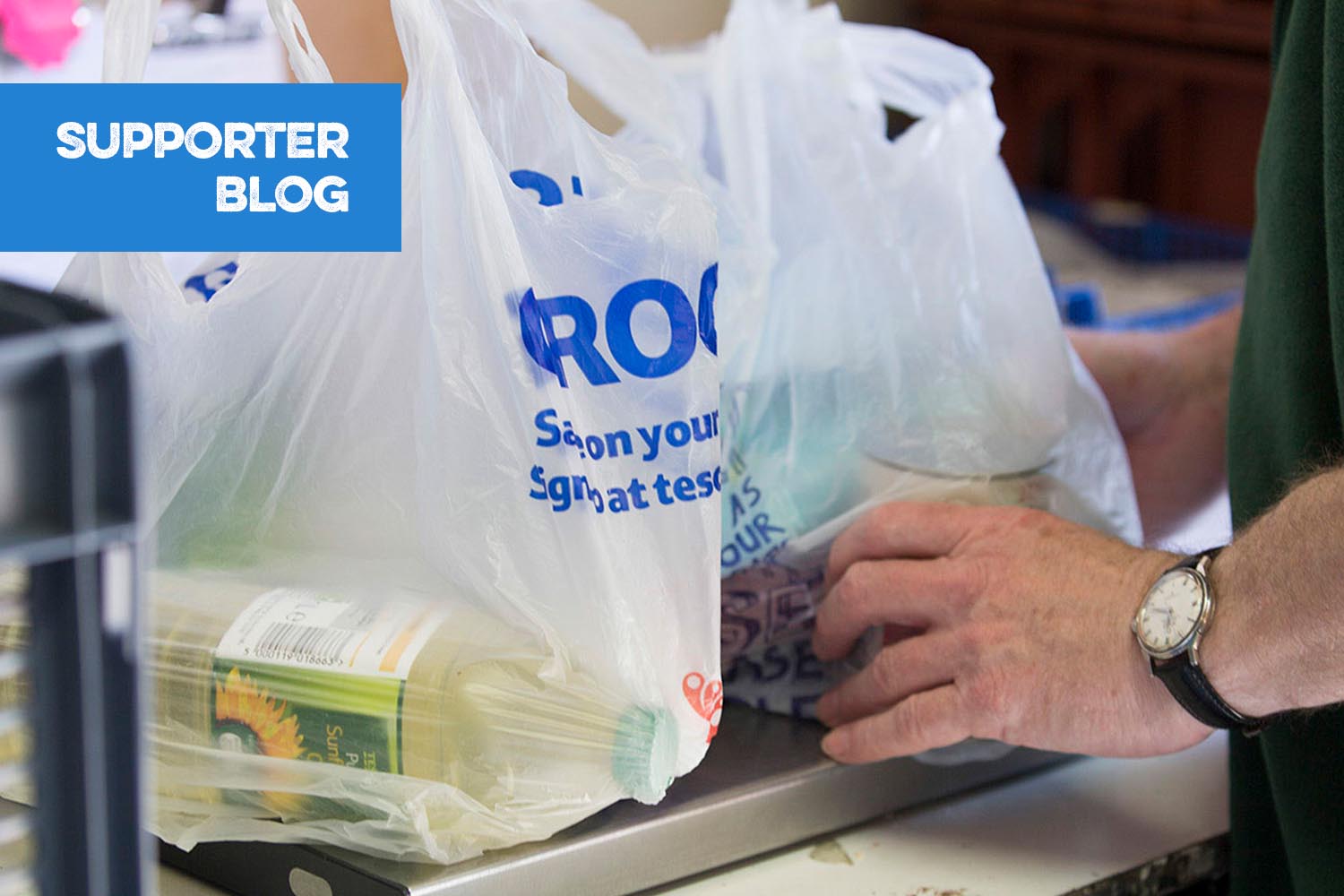I know it’s hard to get through life with dignity, courage and strength when your basic needs aren’t met.
My support for The Trussell Trust comes from a place of compassion – I hate the thought of people struggling to meet their basic needs in a country like Britain. It also comes from a place of understanding, just a tiny bit, what people who turn to foodbanks might be going through.
My parents had another daughter a few years after I was born. Everything seemed ordinary at first – she was a smiley baby, and although her development was slower than mine had been, this wasn’t a cause for concern. By the time she was eighteen months old, however, it was clear something wasn’t right. She wouldn’t really engage with people and seemed in her own world most of the time. In the early 1980s, attitudes towards disability were much less enlightened than they are now. Doctors were brusque and uncaring in their diagnoses, and the message they gave my parents was essentially: she’s severely handicapped, she’ll never speak, she’ll never get any better, deal with it. The local authority offered to send her to the one local, special needs school, which had a terrible reputation, and when my parents refused this and asked for alternative help, this local authority refused to give any. After my mother gave up work to look after my sister, my parents didn’t even know they were entitled to a Blue Badge or any other support for disabled people and their carers. They certainly didn’t have any emotional support for the shock. Unsurprisingly, my father had a heart attack.
They heard about an institute that specialised in treating disabilities like my sister’s. The institute was more than 200 miles away and required staying in nearby accommodation for the week, four times a year. Throughout the year, my mother would spend six to eight hours a day carrying out a complex physical and mental therapy programme at home. She couldn’t have done this without the help of local strangers who kindly volunteered their time every week for years. Some of the contractors my father worked with had donated some of the materials to make the apparatus for the therapy programme. In the meantime, my father’s friends at work started giving him their weekend shifts, knowing that he needed money for my sister’s treatment. Both of my parents had a strong work ethic, paying their own way through college with one job after another, but now they were starting to struggle. They started to get help from charities and other organisations: the London charity, Help a Capital Child, paid for my sister’s institute fees (£75 a month) for one year, Ford gave a discount on a car, Ladybird and other publishers donated books and educational materials.
But the thing that shocked me as a young child was the delivery from the Salvation Army. I went to the front door one day to see our local officer giving bags and boxes full of groceries to my parents. I saw huge packets of cereal, washing powder, and toilet paper, and I was confused. I couldn’t understand why we were being given these; the book donations were exciting and, to my young mind, they were like early Christmas presents from kind strangers. But cereal and toilet paper? Who gives that to someone? It turned out that the Salvation Army donated groceries more than once – they were given donations from supermarkets, and they decided who to give these to. When I thought about this time of our lives much later, I expected my father to be embarrassed when I asked him about it – surely it would have hurt his male pride to receive such charity? On the contrary; he said he was grateful that so many people tried to understand the circumstances we were in and just how much we were struggling.
I support The Trussell Trust because I know it’s hard to get through life with dignity, courage and strength when your basic needs aren’t met. I just wish there wasn’t a need for foodbanks in the first place.
Shamini, supporter of The Trussell Trust



